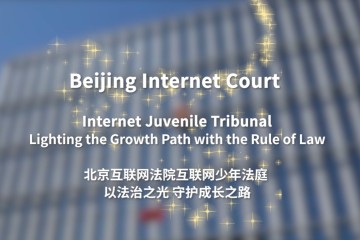Beijing Internet Court imposes heavy fine for false evidence
The Beijing Internet Court fined a defendant 100,000 yuan (14,260 US dollars) for fabricating evidence in a case on reputation infringement.
During the trial, Yang, the plaintiff claimed that Zhang, the defendant who registered an account with real identity on Weibo, a popular Chinese social media platform, posted remarks on the platform which allegedly marred Yang’s reputation.
Zhang argued that because his ID and mobile phone had been lost, it was not him who opened the account involved in the case. He then submitted to the court the evidence that he had reported the loss to the local police station and the authority’s reply.
To find out the fact, the court sent a letter of investigation to the police station which later replied that the alleged reply to Zhang’s report was not from it.
Though the court presented the police station’s reply letter during the trial, Zhang insisted the reply were from the station without submitting any other evidence.
After comparing documents and reviewing the police’s reply letter, the court finally determined that the alleged reply from the police was fabricated by Zhang.
The court ruled that the defendant’s fabrication of evidence seriously justified a fine of 100,000 yuan ($14,320) in accordance with Article 115 of the Civil Procedure Law of the People's Republic of China.
The online trial model poses new challenges to evidence review and the enforcement of compulsory measures against impediments to the civil proceeding.
Since the online court is an important part of China’s court system that exercises judicial power on behalf of the country, its normalization and seriousness should not be undermined due to changes in the venue.
The severe penalty imposed on the defendant in this case demonstrates the court's stance of resolutely resisting forgery of evidence, safeguarding the court’s dignity, and ensuring its impartiality in trials. It also serves as a guidance for litigants to be honest in litigations and observe the good faith principle.

 Judicial White Paper
Judicial White Paper
 Play
Play Play
Play Online Lawsuit Guide
Online Lawsuit Guide Beijing Internet Court Lawsuit Service WeChat Account
Beijing Internet Court Lawsuit Service WeChat Account  Beijing Internet Court WeChat Account
Beijing Internet Court WeChat Account